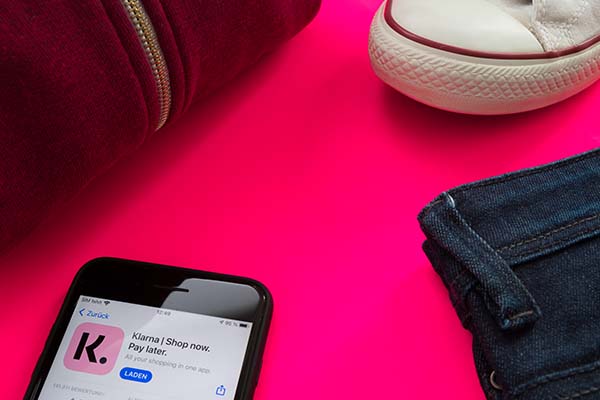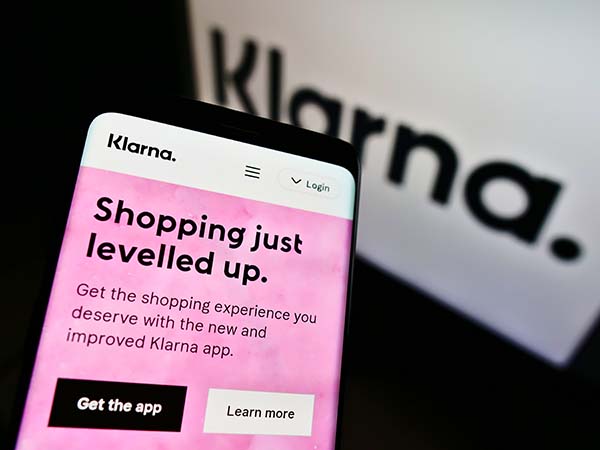Buy Now Pay Later (BNPL) - Everything You Need to Know
What is Buy Now, Pay Later (BNPL), how exactly does it work, and could it be a suitable option for you to consider?
In our guide, Little Loans lifts the lid on BNPL, providing the answers to some frequently asked questions, as well as exploring alternative options.
What is Buy Now Pay Later?

BNPL allows you to make a purchase and split the full cost over a longer period of time.
An initial upfront payment is usually required, with the remainder of the money being paid back either in instalments or one lump sum further down the line.
Many online and in-store retailers offer BNPL as a payment option, although you should think very, very carefully before you consider using it. In the section below, we’ll explain a little more about how BNPL typically works.
How does BNPL work?
While the general principle remains the same, every BNPL provider will work slightly differently and have their own regulations in place.
We’ve included an example of how BNPL could work. Please note that the following example is for illustrative purposes only; repayment instalments and criteria will vary between providers.
- Your microwave has given up the ghost, and you need to buy a replacement model as soon as possible. You head to your nearest electrical store and find one for £60.
- You don’t have the immediate funds to cover the cost, so you choose to complete your purchase with BNPL. You pay £20 upfront and take your new microwave home. Please note that some BNPL providers may charge an initial purchase fee.
- In two weeks' time, you pay another £20 off your microwave purchase. This will usually be taken via Direct Debit or continuous payment authority (CPA). These repayments will be ongoing over fortnightly periods until the full balance has been cleared.
What’s a CPA?
A CPA is when you give a company your consent to take a pre-agreed amount of money from your debit or credit card on your pre-scheduled repayment date(s). You should notice the money automatically leaving your account on or around the date of your next or final BNPL repayment.
BNPL: Stop and think
It’s important to remember that while BNPL could present as an attractive option, choosing it as a payment method is not a decision that should be taken lightly.
Just because you could apply for BNPL, it certainly doesn’t mean that you should.
You should never spend money that you cannot afford to repay. Before you make any purchase, you might find it useful to ask yourself the following questions:
- Can I afford it?
- Is it a need or is it a nice-to-have?
- Do I really need it?
- Could I borrow this item from a loved one or community group instead? The Olio app is a great way for local communities to connect and share or give away items.
- Is it worth the money?
- Am I still likely to use this item in 12 months’ time?
Is BNPL regulated by the Financial Conduct Authority (FCA)?

As of March 2025, BNPL is mostly unregulated in the UK.
While this is set to change in 2026, it means that for the time being, this type of borrowing could put vulnerable customers at risk of financial hardship.
The FCA requires all authorised and regulated lenders and providers to complete a creditworthiness assessment on anybody who applies for credit. These checks are in place to protect the borrower and make sure that they’re able to repay the money they owe without risking financial stress and a spiral of debt.
Are purchases made with BNPL protected by Section 75?
While the sector is currently unregulated by the FCA, any purchase made through BNPL will not be protected by Section 75.
What does this mean? When you use a credit card to make a purchase between £100 and £30,000, Section 75 of the Consumer Credit Act 1974 ensures that both the credit card provider and the retailer are jointly responsible, should anything go wrong.
The proposed introduction of new regulations in 2026 will mean that purchases made with BNPL will also be protected by Section 75 after that date.
Once the new regulations are introduced, you’ll also be able to escalate a complaint to the Financial Ombudsman Service (FOS) if you’ve received unsatisfactory service from a BNPL provider. As it currently stands, you’re only able to complain to the company itself.
Do you pay interest on BNPL?
Some BNPL companies may charge interest. This should be made clear to you in your terms and conditions.
How much does BNPL cost?
The overall cost of BNPL will depend on several factors, including:
- The total value of the purchase; and
- Whether the provider charges interest and/or fees.
Does BNPL affect your credit score?

Whether a BNPL arrangement will affect your credit score depends on the particular agreement and provider in question.
Some BNPL providers will complete a credit check when you apply. This could include either a soft or hard search.
A soft search will not impact your credit score or be visible on your credit file. On the other hand, a hard search will remain on your credit file for up to 12 months, and multiple hard searches within a short period of time will cause your credit score to decline.
In addition to this, certain BNPL providers may share your repayment history with the credit reference agencies (CRAs). If you’ve made a late repayment or missed one altogether, this information will be added to your credit report and will damage your credit score.
How to keep on top of your BNPL commitments
- Try to avoid taking on multiple BNPL commitments at the same time. Remember, some BNPL companies may complete a hard search on your credit file, and multiple hard searches within a short period of time will negatively affect your credit score.
- Exercise financial discipline and be mindful of how much money you spend through BNPL. It could be very tempting to overspend when you’re not making the full payment upfront, but you should always be aware of the overall cost of the purchase and be confident that you can definitely afford to repay the money you owe.
- Make sure you’re fully aware of your repayment schedule so you don’t miss an instalment. If paying by Direct Debit or CPA, ensure your card and bank details are kept up to date to prevent any issues with the payment being accepted.
Who offers BNPL?
There are many UK-based companies that offer BNPL, including Klarna, Clearpay, and Zilch.
If the retailer you’re shopping with offers BNPL, you should see this advertised as an available payment method at the online checkout. If you’re shopping in-store, you’ll usually need to download the BNPL app belonging to the provider used by the retailer.
You can find a list of BNPL companies and their associated stores here.
BNPL: important things to know
Before you make a purchase with BNPL, you should ensure that you understand the following:
- How much, if anything, you need to pay upfront.
- When you’ll be required to make your next payment.
- How much money you’ll be expected to pay per instalment.
- The date by which you’ll need to have completely paid off your purchase.
- Whether you’ll be charged any interest on your purchase.
Again, the most important thing to ask yourself is, can I afford to make this purchase?
What are the alternatives to Buy Now, Pay Later?

BNPL will not be a suitable option for everyone.
In this section, we’ll explore some BNPL alternatives that you might wish to do some further research into, although as discussed, you should never borrow money if you can’t afford to repay it.
- Save up
If you don’t need to buy something there and then, taking a step back and saving up for it might be a better choice. It might take a bit longer, but you won’t harm your credit score and there are no interest or fees to worry about when you pay for something outright from your own pocket. - Borrow money from a family member or friend
Borrowing money from family and friends could be helpful in the event of an urgent financial expense, but if your repayments are not managed carefully, this set-up could put a strain on your relationship. A clear repayment plan, agreed by both parties and preferably put in writing, is crucial. - Use a credit card
Some credit cards, such as 0% purchase credit card, offer a period of no or low interest spending. Once the promotional period has ended, any balance leftover will accrue interest at the standard interest rate.
Using a credit card will impact your credit score. If you stay within your credit limit, keep your utilisation as low as possible and make at least the minimum repayment amount each month, your credit score could improve. Please bear in mind that if you do not make your monthly repayments, spend outside of your credit limit, or use your credit card to withdraw money from a cash machine, your credit score is likely to suffer. - Search for a personal loan
When faced with a financial emergency, a personal loan might be something to think about.
A personal loan will be repaid in monthly instalments, which will include interest.
Worried about your credit score? Several of the lenders on the Little Loans panel are willing to consider applications from people with poor credit history. Please be aware that a bad credit loan could come with a higher rate of interest, and it might not always be possible for you to borrow as much money as you need.
Search for a loan with Little Loans
Little Loans could help you search for a short-term personal loan between £100 and £10,000. Depending on the amount of money you apply to borrow, you could repay your loan across a term from 3 to 60 months.
Little Loans, and all the lenders on our panel, are authorised and regulated by the FCA. We do not charge any fees for our service.
The Little Loans journey
If you’ve done thorough research and have decided that you’d like to search for a loan as a BNPL alternative, here’s everything that you can expect from the Little Loans journey.
Step one: fill out our online form. This should take around five minutes to complete.
Step two: in just 60 seconds, we will complete a soft search with no impact to your credit score and scan our panel of lenders for a suitable loan.
Step three: if you’ve been matched with a loan, you will be redirected to the lender’s website. If you’d like to make a full application directly with the lender, a creditworthiness assessment will be carried out. This will include a hard search or Open Banking.*
Step four: if the lender is happy with the outcome of their checks, they will formally offer you the loan.
Step five: your lender will let you know when your money will be sent. Some of the lenders on our panel could send your money on the same day your application is approved, although the time it takes for the money to appear in your account will depend on your bank’s policies and procedures.
Important: your lender will send you a loan agreement. Make sure you read this carefully. Once you’ve read through everything and are happy to continue, you can sign and return the agreement.
*Open Banking is a safe and secure procedure used by many authorised financial third-parties, such as lenders. With your consent, Open Banking allows your chosen lender to access your online bank account and view your recent transactions. This grants them with a more up-to-date overview of your financial situation than your credit history alone, which may not reflect your current repayment habits.
Who can search for a loan with Little Loans?
You’re welcome to search for a loan with Little Loans if you:
- Are over the age of 18;
- Are a UK resident;
- Have a UK bank account and valid debit card; and
- Have a regular source of income paid into your bank account.
I need help with money, what should I do?
If you’re worried about your financial situation, please know that you can access free, confidential support through the following charities and organisations: StepChange, MoneyHelper, Citizens Advice, and National Debtline.
Representative example: Amount of credit: £1000 for 12 months at £123.40 per month. Total amount repayable of £1,480.77 Interest: £480.77. Interest rate: 79.5% pa (fixed). 79.5% APR Representative. We’re a fully regulated and authorised credit broker and not a lender

